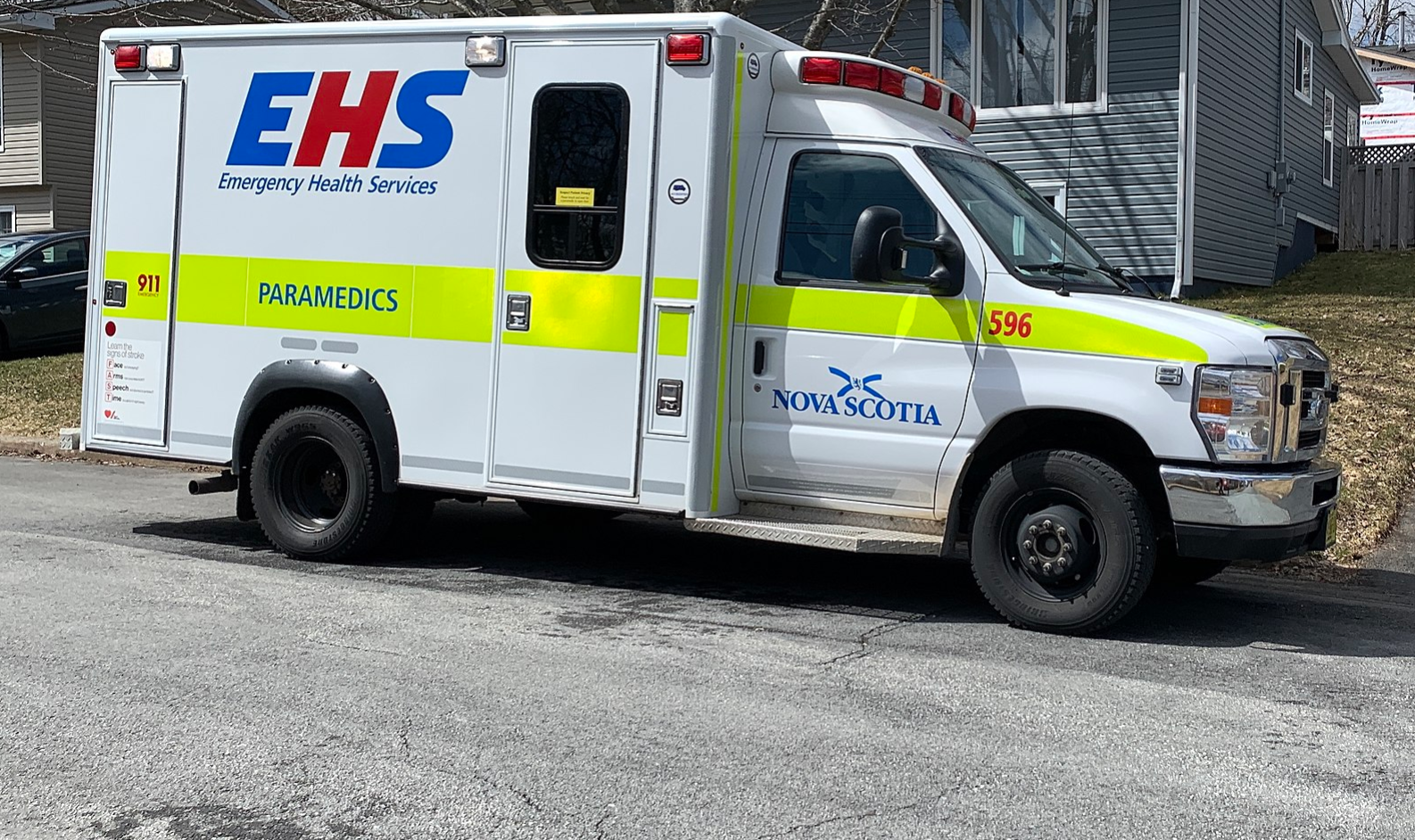As we navigate a surge in respiratory-related illnesses, EHS Operations, Nova Scotia Health and IWK Health would like to remind Nova Scotians how to make the right call to access the right care, including knowing when to call 9-1-1.
Using the 9-1-1 system appropriately allows paramedic resources to be available in cases of medical emergencies that pose an immediate threat to life.
We encourage Nova Scotians to call 9-1-1 for medical or life-threatening emergencies including, but not limited to, the following:
- Stroke/facial awareness
- New onset of weakness
- Heart attack/chest pain or tightness
- Unable to wake up/unconscious
- Sudden onset of severe headache or confusion
- Seizure and/or head injury
- Major assault
- Severe difficulty breathing or trouble speaking
- Uncontrolled or severe bleeding
- Major trauma, such as loss of limb or laceration
- Severe allergic reaction
- Severe burn
If your situation is considered minor or non-urgent, please visit your healthcare provider, call 811, contact VirtualCareNS, or go to a walk-in clinic, community pharmacy primary care clinic, urgent treatment centre, or mobile primary care clinic. You can find the right care for you through the new YourHealthNS app.
Health needs that may be addressed at the above options include:
- Prescription refills or renewals excluding prescriptions related to controlled substances. (Please note: 811 cannot refill or renew prescriptions.)
- Mild abdominal pain
- Mild strains/sprains
- Mild Headaches
- Earaches
- Sore throat
- Minor infections
- Skin and eye irritations
- Mild asthma
- Minor respiratory issues
- Cough, flu, or cold symptoms
- Urinary tract infections
EHS has several programs that provide the support, response, and care that meet the needs of Nova Scotians. These include community paramedic programs, single paramedic response units, and a registered nurse working on-site in the EHS Medical Communications Centre (MCC), collaborating directly with the on-site physician, clinical support paramedic, and communications officers.
The MCC nurse provides 9-1-1 callers with recommendations for alternative forms of care following a structured, in-depth assessment of the situation.
Please note other options for care:
- Do not hesitate to visit an emergency department if you are experiencing a medical emergency.
- Get free access to care through VirtualCareNS if you’re on the Need a Family Practice Registry: https://www.nshealth.ca/clinics-programs-and-services/virtual-care-ns. Those who do have a primary care provider can get two free virtual care appointments a year https://www.nshealth.ca/accessing-virtual-care-attached-patients.
- Download the YourHealthNS app or use the website to find the care you need: https://yourhealthns.ca/.
- For general health advice and information call 811, which is a service offered 24 hours a day, seven days a week by experienced registered nurses.
- Book an appointment or find a walk-in Mobile Primary Care Clinic. Schedules and locations are kept up-to-date: Book an appointment or find a walk-in Mobile Primary Care Clinic. Schedules and locations are kept up-to-date: https://www.nshealth.ca/mobileprimarycareclinics.
- Find a Community Pharmacy Primary Care Clinic: https://pans.ns.ca/cppc or a Find a Pharmacist Walk-in Clinic+ https://lawtons.ca/pharmacistwalkinclinic/.
- The 988: Suicide Crisis Helpline provides urgent, live, trauma-informed support by phone and text 24 hours a day, 7 days a week.
- The provincial Mental Health and Addictions Crisis Line can also be reached 24/7 by calling 1-888-429-8167.
- The Atlantic Canada Poison Centre can be reached at 1-800-565-8161 or at https://atlanticcanadapoisoncentre.ca/.
- Additional information on local resources at https://www.nshealth.ca/wheretogoforhealthcare.
These care pathways are based on best practices and research evidence and by matching them with your medical need it will allow us to provide the right care for the right patient at the right time for the right reasons.
Remember: in the event of a medical emergency, please dial 9-1-1 and a paramedic crew will be dispatched immediately.
Keeping patients, healthcare workers and the public safe is always our top priority.
Via NSH release

